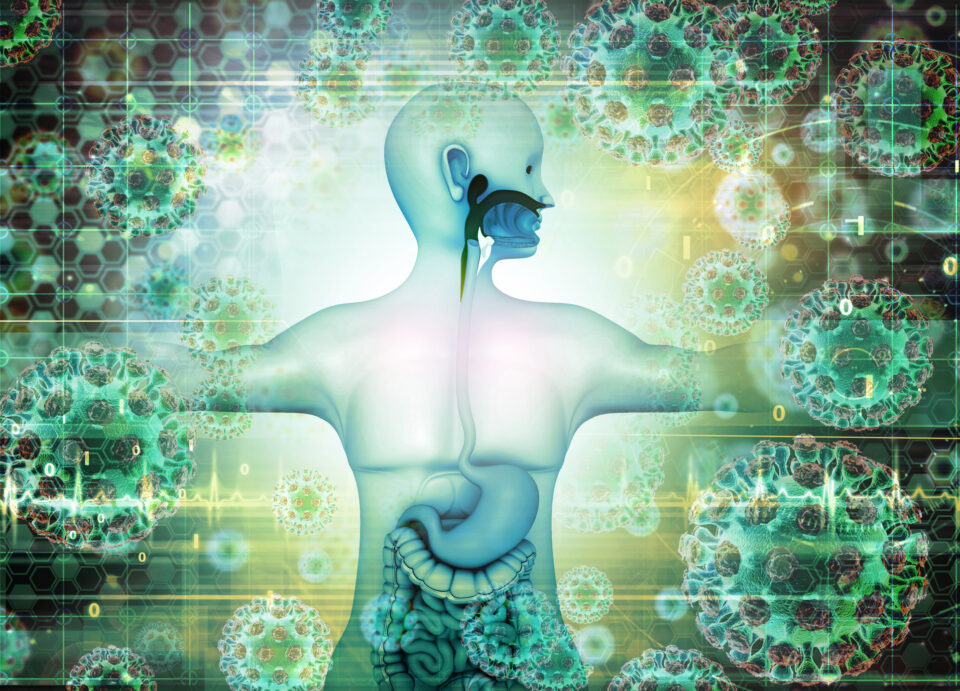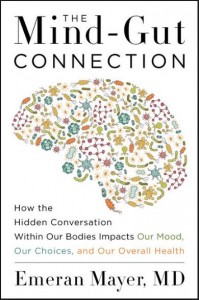Trust Your Gut: The Mind-Gut Connection


 The mind-gut connection: What is it and how did it evolve?
The mind-gut connection: What is it and how did it evolve?
Chances are, at some point in your life, you’ve noticed the connection between your brain and your gut. If you’ve ever felt queasy as you walked into an uncomfortable situation or based a life decision on a “gut feeling,” then you know that sometime our bodies react faster than our minds.
Digestion and emotion have long been treated separately in medicine and science, like dots far apart on a map. Despite the phrase “gut feeling” that implicitly connects the belly and the brain, the reality is that gut physiology, microbes, and the mind have all been studied independently. It’s why, when you walk into a doctor’s office complaining of both constipation and a low mood, you might have two different conversations and get two different prescriptions.
In his new book, The Mind-Gut Connection: How the Hidden Conversation Within Our Bodies Impacts Our Mood, Our Choices, and Our Overall Health, gastroenterologist and University of California Los Angeles (UCLA) professor of medicine Dr. Emeran Mayer starts to skillfully draw lines between these far-apart dots. Mayer uses the book to explain the different ways the gut and the brain communicate, emphasizing the nascent science on the important role played by the gut microbiota.
 Mayer’s genuine curiosity about his patients led him into a career of research focused on the gut-brain axis. He took seriously the patients who came into his office with bizarre-sounding stories—sudden, unexplained vomiting in the mornings; extreme anxiety about toxic waste in the colon. The book is the product of his lifelong drive to find out more.
Mayer’s genuine curiosity about his patients led him into a career of research focused on the gut-brain axis. He took seriously the patients who came into his office with bizarre-sounding stories—sudden, unexplained vomiting in the mornings; extreme anxiety about toxic waste in the colon. The book is the product of his lifelong drive to find out more.
Combining cutting-edge neuroscience with the latest discoveries on the human microbiome, Mayer has written a practical guide in the tradition of The Second Brain, and The Good Gut, that conclusively demonstrates the inextricable, biological link between mind and the digestive system.
The book is essentially divided into three sections:
- In part one Mayer explains in detail how messages travel both upward and downward between the digestive system and the brain. The messages are sent in various ways: via hormones, the vagus nerve “information highway,” and certain signaling molecules of immune cells.
- Part two explores how interactions between the mind and gut microbiome can inform everyday emotional experiences. Here Mayer makes much of the influence of early-life events on the gut-brain dialogue, an idea supported by fascinating research done in mice. He even speculates that research might reveal a key role for the gut microbiota in determining how long and how intense our emotions become on a daily basis.
- The third part of the book is about optimizing brain-gut health. Mayer explains how diet plays a role in shaping the gut microbiota; he draws from research from cultural groups that have dramatically different diets from a typical person in North America. Dietary differences may even shape gut-brain communication. For example, high-fat diets could harm the brain. The book turns then to the need to rediscover the Mediterranean diet as well as beneficial fermented foods.
 Recommendations are offered in a final chapter; some are based on evidence and others (like eating organically grown foods) seem to feature distinctly Californian concerns. But all of the exhortations resonate—for example, “enjoy meals together” is a good reminder to today’s fast-living families.
Recommendations are offered in a final chapter; some are based on evidence and others (like eating organically grown foods) seem to feature distinctly Californian concerns. But all of the exhortations resonate—for example, “enjoy meals together” is a good reminder to today’s fast-living families.
The Mind-Gut Connection also describes:
- Why consuming a predominantly plant-based diet is key for gut and brain health.
- The importance of early childhood in gut-brain development, and what parents can do to help their children thrive.
- The role of excessive stress and anxiety in GI ailments and cognitive disorders.
- How to “listen to your gut” and pay attention to the signals your body is sending you and much more.
With a simple, practical regimen drawn from the latest research, Dr. Mayer shows us that paying attention to the mind-gut balance is the key to unlocking vibrant health.